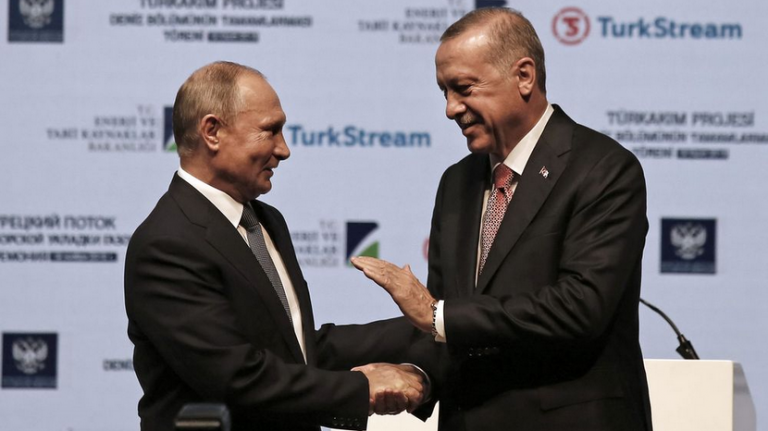Russia and Turkey held urgent talks in July on connecting Turkish companies and lenders to the Russian central bank’s alternative to the SWIFT financial messaging system.
The two sides met soon after Turkey risked the threat of U.S. sanctions by taking delivery of a Russian S-400 air-defense missile system, snubbing demands by the Trump administration to cancel the deal and sparking outrage in Congress. Turkish President Recep Tayyip Erdogan and Russian leader Vladimir Putin have fostered ties in recent years, including over the war in Syria, while Russia has adapted its financial system in response to international sanctions since it annexed Crimea from Ukraine in 2014.
Russian Deputy Finance Minister Alexei Moiseev confirmed the talks took place after details of the meeting emerged from a government document that was found dumped in a landfill near Moscow. A picture of the Finance Ministry letter detailing the meeting with Turkish Deputy Finance Minister Bulent Aksu was published on the Telegram channel of Russia’s Baza news service on Monday.
“The feasibility of signing a memorandum at these negotiations was discussed, it was decided that we need to work on it and now we are working on it,” Moiseev said by phone late Tuesday. “Depending on what will be in the memorandum, we will proceed.”
The Bank of Russia established the financial messaging system in 2014 with the aim of “reducing external risks” and protecting against the threat of being cut off from the global SWIFT service. It aims to ensure uninterrupted services for transferring messages in SWIFT formats, according to a presentation on the central bank’s website. Putin said in June that Russia is in talks about connecting China to the network. The central bank also created Russia’s MIR card and the National Payment Card System to process domestic payments in 2015 in response to sanctions risks.
Read more HERE
Ask me anything
Explore related questions





